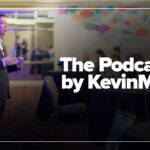Over the past two months, I embarked on a mission to complete two reading tasks: A journey in service, the autobiography of Nigeria’s former military dictator, General Ibrahim Babangida, followed by Dream count, the latest work by the world-renowned writer Chimamanda Ngozi Adichie. Unfortunately, I have barely progressed beyond the opening chapters of either. My focus, the essential ingredient for deep reading, has remained elusive.
I first realized the extent of my fractured attention and the reason behind it when I was absentmindedly fiddling with my phone and stumbled upon an app that tracked my screen time. It showed my total hours spent on Facebook and other social media platforms that week. It was an epiphany.
Every time I picked up a book and before I could even settle into a chapter, my phone would buzz. A text message. Then an email. Then, as if on cue, my fingers reflexively reached for social media, scrolling mindlessly. What was meant to be an hour of deep reading turned into fragmented minutes of distraction, leaving me with a nagging feeling, one that many people today might recognize, that I was losing control over my own mind.
This experience, I am sure, is hardly unique. It’s a modern condition, one that we have all, in some way unwittingly succumbed to. We live in an era where attention is no longer an intrinsic possession but a commodified resource, purchased and sold by corporations whose business models rely on our perpetual engagement. Social media platforms, news outlets, and entertainment apps have perfected the art of hijacking our focus, making distraction the default state of our existence. The result? A population that struggles to concentrate, create, or even sit with its own thoughts for extended periods.
The human brain was never designed to process this constant barrage of stimuli. Throughout history, our ancestors thrived in environments that demanded sustained focus, whether for survival tasks like hunting and farming, or intellectual pursuits. The modern world, however, operates on an entirely different paradigm. Each ping, every notification, and each influx of information vies for our attention, creating a mental environment that is not only exhausting but ultimately unsustainable.
A study conducted by Gloria Mark, a professor of informatics at the University of California, Irvine, has demonstrated that it takes an average of 23 minutes and 15 seconds to regain focus after an interruption. Multiply that by the countless times we check our phones daily, and it becomes apparent how deeply our productivity and intellectual depth have been compromised. More disturbing still is the psychological toll: Anxiety, stress, and even depression are increasingly linked to the overwhelming digital noise, as our minds struggle to process an unending stream of often inconsequential updates.
Even our ability to engage in deep, meaningful conversations has suffered greatly. In social settings, how often do we see people half-listening while their eyes flicker toward their phones? The art of being fully present, of truly listening, reflecting, and engaging, has become rare, replaced by fragmented attention that weakens relationships and stunts intellectual growth.
In many respects, our ability to focus is intrinsically tied to our autonomy. If we cannot even control our own attention, can we genuinely claim control over our lives? Corporations such as Facebook, TikTok, and Google invest billions into engineering algorithms that are deliberately designed to be addictive.
The longer we remain engaged, the more profitable we become to them. It is no coincidence that social media platforms employ endless scrolling and push notifications, psychological traps meticulously crafted to ensnare us.
Yet, the most insidious aspect of this system is not just the distraction, it is the manipulation. By passively consuming content curated by algorithms, we surrender our capacity for critical thinking. Our worldview becomes shaped not by deliberate reflection, but by whatever content is most engaging, sensational, or emotionally charged.
This has profound consequences for society at large. Misinformation, polarization, and groupthink flourish in environments where individuals no longer make the time to analyze, question, or deeply engage with ideas. If we are to reclaim our attention, we must do so with intention.
To regain control of our lives, we must be deliberate about our relationship with technology. This means uninstalling unnecessary apps, disabling non-essential notifications, and creating designated tech-free spaces in our daily lives—during meals, before bed, and in moments of reflection. We must carve out dedicated time for focused, uninterrupted work or study. This means putting away our phones, avoiding social media, and eliminating distractions, offering our undivided attention to the task at hand.
Instead of mindlessly consuming short-form content, we should commit to reading books or long-form articles that demand sustained focus. Doing so will enhance our capacity to concentrate and process complex ideas. And perhaps most importantly, we must strive to offer others our full attention. Through eye contact, active listening, and keeping our phones out of sight, we can significantly improve the quality of our interactions.
The war for our attention is real, and the battlefield is everywhere; our phones, our workplaces, even within the walls of our own homes. However, the good news is that we retain our agency. We can choose to resist the pull of constant distraction and reclaim our ability to think deeply, connect meaningfully, and live with intention.
The next time you instinctively reach for your phone, pause. Ask yourself: Is this what I truly want to be doing? Or is my attention being hijacked? In that brief moment of awareness, you initiate the process of regaining control over your life. And in a world meticulously designed to fragment your focus, that act is nothing short of revolutionary.
Osmund Agbo is a pulmonary physician.





















![Unpaid on-call shifts are driving doctors into early retirement [PODCAST]](https://kevinmd.com/wp-content/uploads/Design-3-190x100.jpg)
